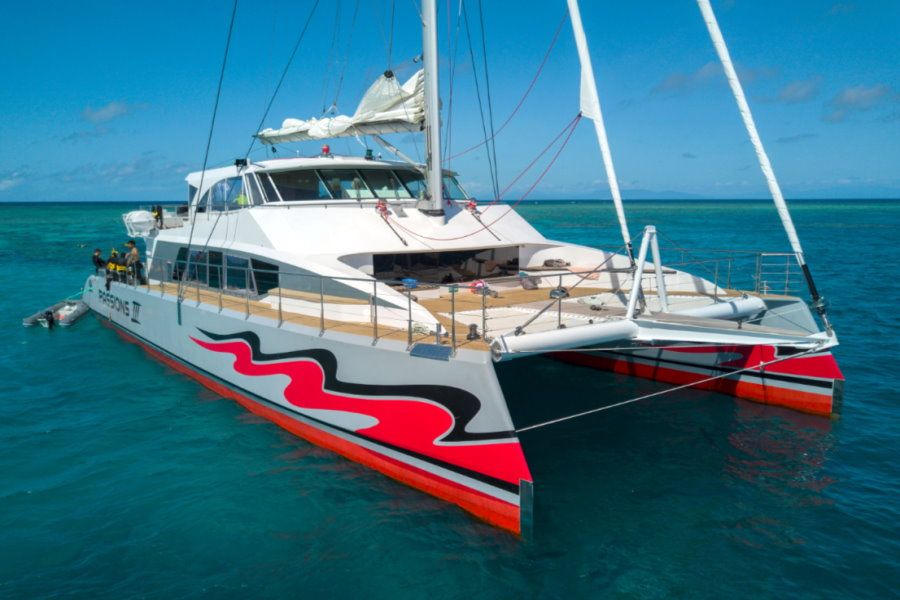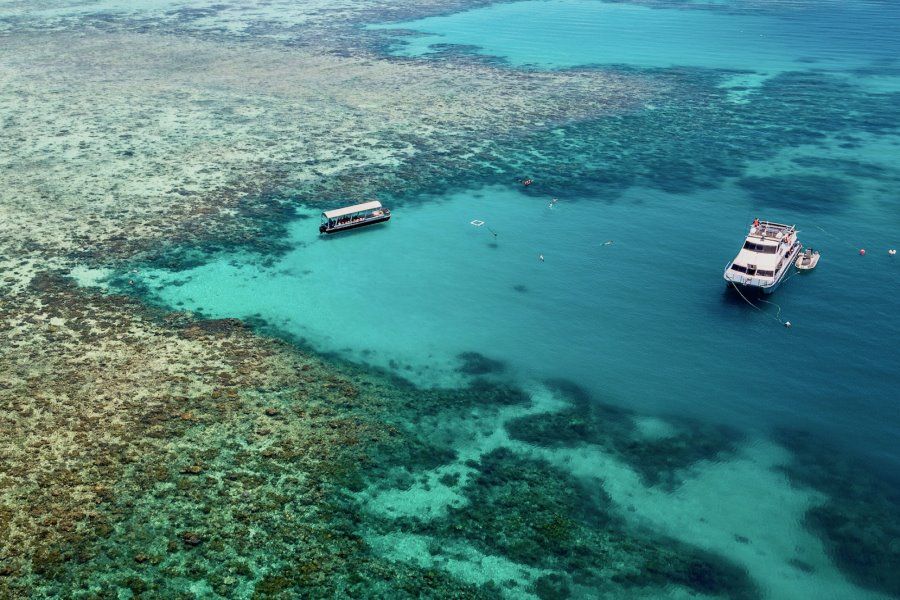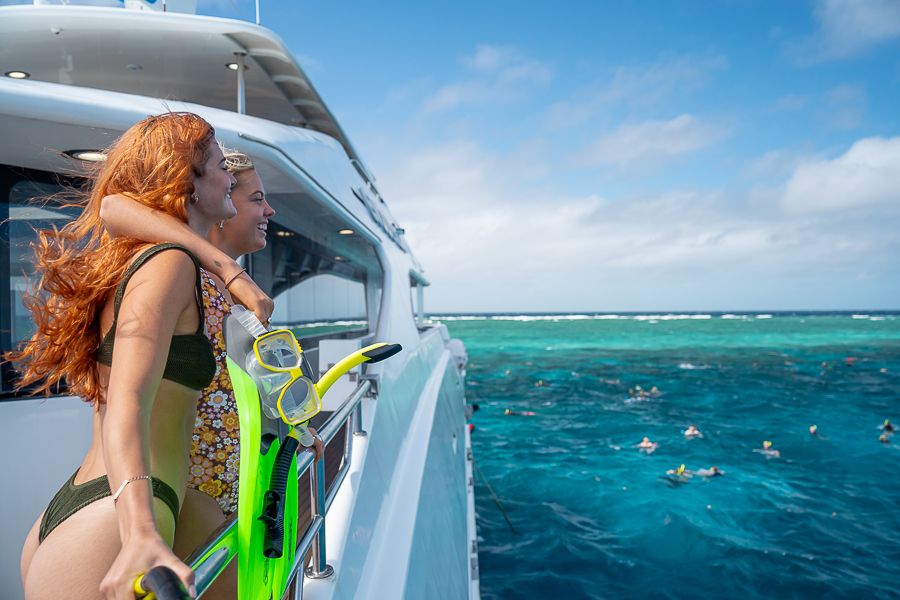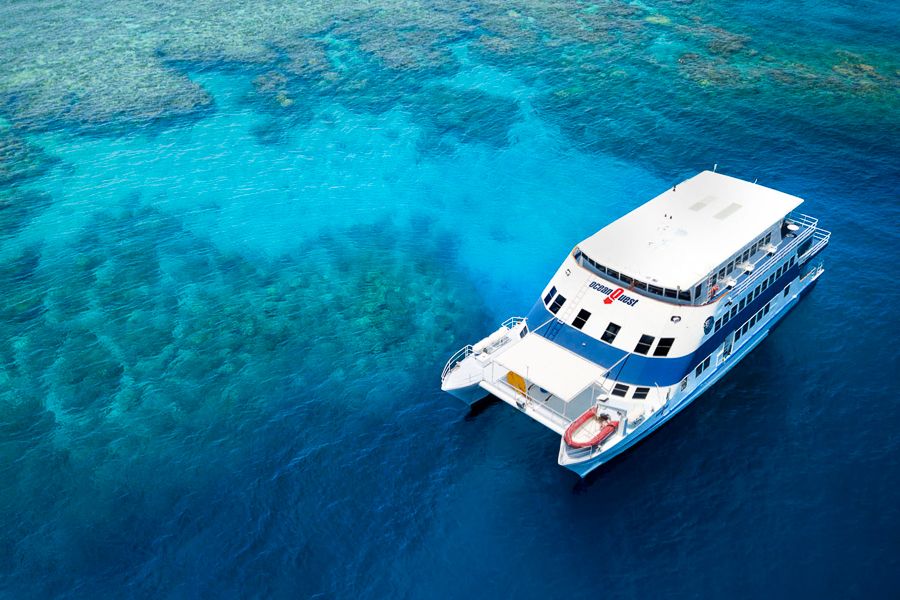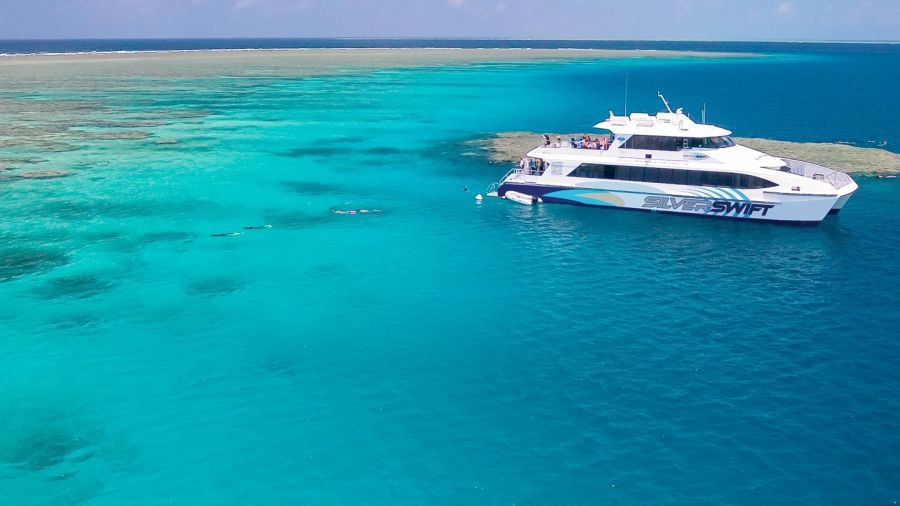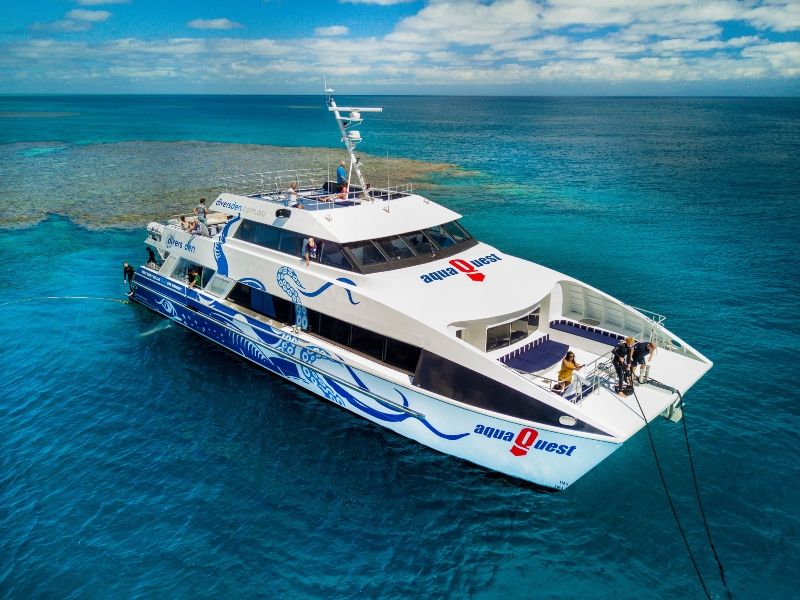Stinger Season In Cairns
Stinger Season in Cairns runs from November until May, but you can still enjoy the coral reefs of the area with the right protection! Australia’s Great Barrier Reef is home to thousands of marine species, from over 4000 varieties of mollusks, hundreds of exotic reef fish, and approximately 400 types of unique corals.
However, the warm tropical waters of the Great Barrier Reef also create ideal living conditions for marine stingers, typically during the ‘marine stinger season’ that runs from November to May in Cairns and Port Douglas.
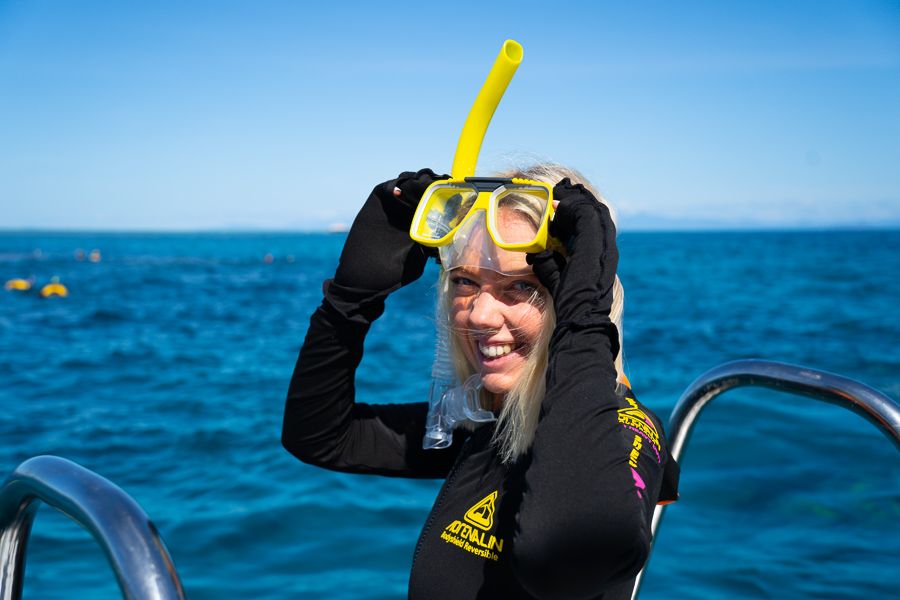
For those Cairns holidaymakers and East Coast travellers planning their next snorkel and dive-filled Great Barrier Reef itinerary, you are sure to come across the term ‘marine stinger’. Our team of reef enthusiasts and local travel experts are here to answer all your Cairns Stinger Season questions - from what marine stingers actually are to the recommended precautions.
Whilst being stung by a dangerous marine stinger is rare in Cairns, visitors can best enjoy their time on the Great Barrier Reef by implementing preventive measures and being fully educated before entering the water!
Explore the Great Barrier Reef with these popular day tours!
When is stinger season in Cairns?
Whilst varieties of marine stingers can be found year-round on the Great Barrier Reef, they are most prevalent during ‘stinger season’ which runs during the warmer months of the year, from the beginning of November until the end of May.
To keep yourself protected at all times of the year, we recommend wearing a stinger suit (lightweight lycra wetsuit) whenever you enter tropical North Queensland waters. Even when temperatures begin to cool towards the end of stinger season, in the months of April and May, it is best to remain cautious, wear a stinger suit, and rest assured that you are protected during your snorkels and dives - even if the chances of encountering a marine stinger are slim!
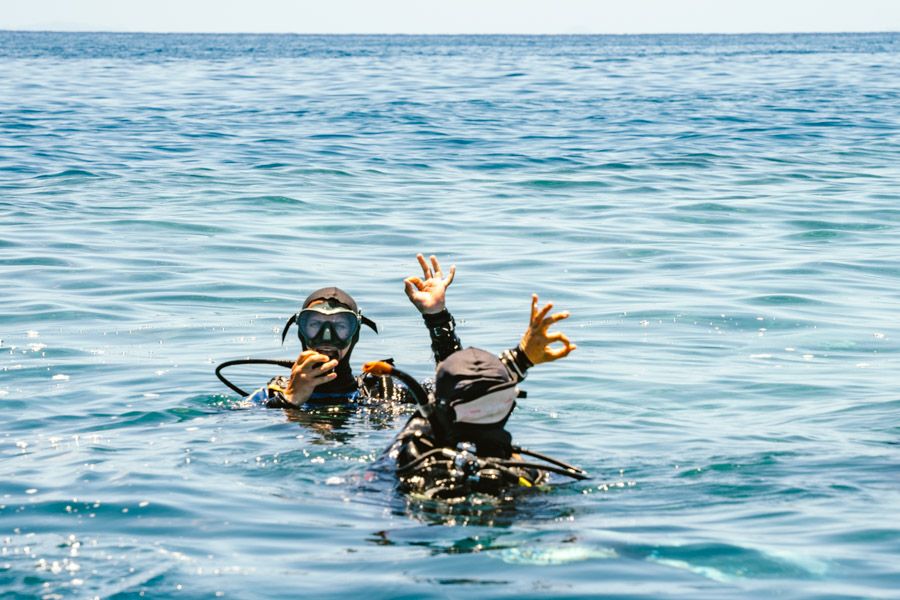
What are marine stingers?
Marine stingers are a sub-species of jellyfish that have highly toxic stings, which are dangerous to humans causing minor to severe reactions, illness, and death in extreme cases. Typically, tropical stingers have a translucent body the size of a basketball, with tentacles up to 3 metres long - although stingers can come in many shapes and sizes.
A large majority of marine stingers found amongst the Great Barrier Reef during stinger season are relatively harmless, creating only a short-lived uncomfortable sting if contact is made in the water. Despite this, there are two extremely harmful species of marine stingers found in the warm Great Barrier Reef waters, the Box Jellyfish and Irukandji.
Box Jellyfish
As one of the most deadly marine stingers, Box Jellyfish are large, transparent stingers with a pale blue, cube-shaped bell. Though their bodies are generally small, their long tentacles can reach up to 3 metres. Found amongst the Northern Australian and Indo-Pacific waters, Box Jellyfish venom has severe life-threatening effects on the heart, nervous system, and skin cells if contact is made, with victims feeling immediate burning pain.
Dowsing with vinegar immediately for at least 30 seconds is recommended by the Queensland Ambulance Service, in addition to calling Triple Zero (000). Anti-venom treatment is available and will be administered by medical professionals.
Irukandji
Translucent and roughly the size of a fingernail, Irukandji are extremely difficult to spot in clear reef waters. Found in tropical Australian waters primarily during warmer months, contact can result in extreme pain and nausea approximately 5 to 45 minutes after the initial sting and have following life-threatening effects on the heart. Irukandji incidents have been recorded during all months of the year, therefore stinger suits are recommended as a precaution year-round.
Dowsing with vinegar immediately for at least 30 seconds is recommended by the Queensland Ambulance Service, in addition to calling Triple Zero (000).
Whilst marine stingers can be found in the waters surrounding Cairns, there are several precautionary steps and measures that are implemented by reef operators and local authorities to maximise swimmer, snorkeller, and diver safety at all times of the year!
Where are stingers found in Cairns?
The clean, tropical waters surrounding Cairns and Port Douglas provide ideal conditions for marine stingers to travel down the coastline and reproduce during stinger season, from early November to late May. Stingers can be found in tidal streams, on the Cairns Coral Sea, and amongst the Great Barrier Reef, however calm waters are generally the most high risk during stinger season. These areas with low wave action and heightened water temperatures allow marine stingers to remain stationary.
In tropical North Queensland waters, Surf Life Saving Queensland recommends always swimming within guarded stinger nets on mainland beaches, and entering the water slowly - to give marine stingers time to move away.
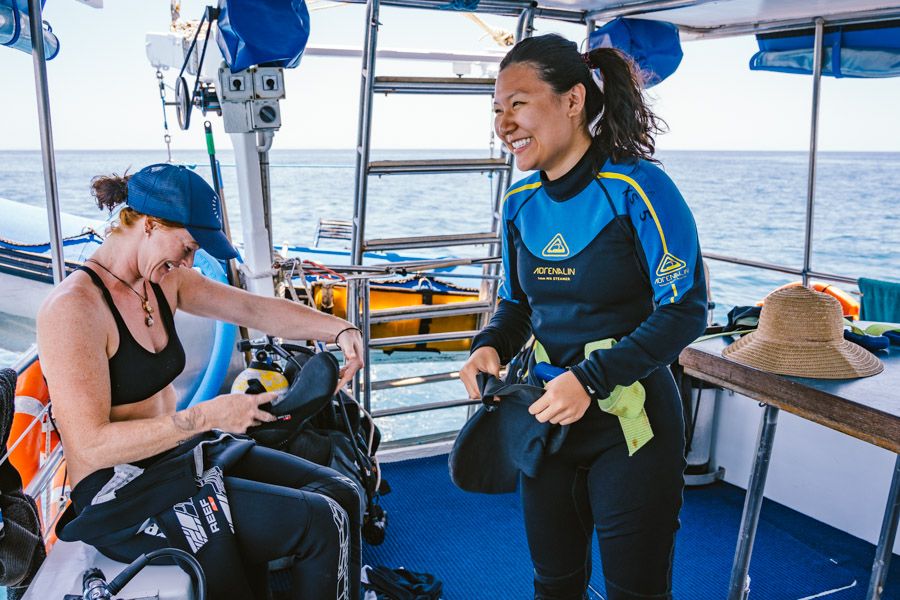
Stinger Season in Cairns: Precautions
Despite the prevalence of marine stingers during stinger season in Cairns, it is rare to encounter a dangerous marine stinger if the recommended precautions are taken before entering tropical waters. Rest assured that during your Great Barrier Reef day or overnight tours, your knowledgeable crew will recommend the necessary precautions to keep you safe during your pristine swims, snorkels, and dives!
Stinger season doesn’t mean you can’t enjoy yourself on the Great Barrier Reef - it just means you have to be aware that you are entering a foreign environment.
1. Wear a stinger suit
A full-body lycra suit, known as a stinger suit, is the best method of protection against marine stingers in Cairns, particularly during stinger season. Stinger suits are provided to each guest on day and overnight tours, at little or no cost, to minimise the risk of being stung whilst entering Great Barrier Reef waters. In addition to ensuring peace of mind and keeping you safe, stinger suits provide great protection against the harsh UV sun rays!
Stinger suits cover your body from neck to ankles, decreasing your already slim chances of encountering a marine stinger by 75%. Pregnant women, the elderly, and children are more receptive to the harmful effects of marine stings, and they can further cover up with a head cap, gloves, and reef shoes if they wish.
Even though it is rare to encounter a marine stinger during the colder Australian months in Cairns, from June to September, it is recommended to wear a stinger suit when entering the water at all times - being cautious is never a bad idea.
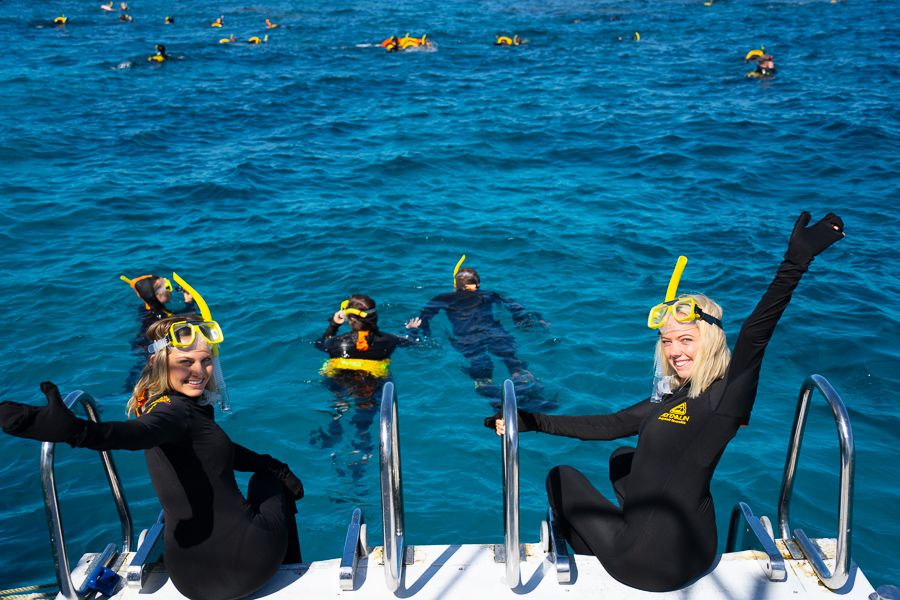
2. Swim in stinger nets on the mainland
During your Cairns getaway the best way to make a splash is with a reef-filled day or overnight tour, however, you may be wondering if it is safe to swim on the Cairns mainland during stinger season. For visitors located in the Cairns CBD, the Cairns Esplanade Lagoon is the best place to take a refreshing dip without worrying about stingers - and is patrolled by lifeguards year-round.
Those hitting the Cairns and Port Douglas mainland beaches are recommended to only swim in patrolled areas with a stinger net or barrier in place. From November through to May, stinger nets can be found at numerous North Queensland beaches.
Patrolled beaches with stinger nets:
Port Douglas, Ellis Beach, Palm Cove, Clifton Beach, Kewarra Beach, Trinity Beach, Yorkeys Knob, Bramston Beach, Etty Bay, Mission Beach, South Mission Beach, Forrest Beach, Balgal Beach, Pallarenda Beach, The Strand, Strand South, Picnic Bay, Holloways Beach, Bucasia.
Despite the protection these barriers provide from most marine stingers, smaller types of jellyfish such as Irukandji can still enter these areas. Therefore it is best to always wear a stinger suit and stop for a friendly chat with an on-duty lifeguard if you have any concerns before taking a swim.

How to treat a jellyfish sting?
Treatment can range between marine stinger species, yet it is best to always act immediately if you or someone around you has been stung. Irukandji, Box jellyfish, and Bluebottles can cause severe reactions in people ranging from painful stings to cardiac arrest.
Dowsing in vinegar immediately to inactivate harmful stinging cells is recommended for most jellyfish stings (including Irukandji and Box jellyfish), whilst immersing the sting in hot water is recommended for Bluebottle stings.
Although it is a very rare occurrence, always alert your highly-trained crew immediately if you have been stung whilst on a Great Barrier Reef tour!
Queensland Government issued procedure if you or someone is stung:
1. Remove casualty from the water and call for medical help (ring 000, or if you are on a tour, alert your qualified crew members)
2. Immediately douse the sting area with vinegar for at least 30 seconds
3. Remove any remaining tentacles off the skin carefully, preferably with a glove
4. Regularly monitor and record the casualty’s pulse, breathing, and conscious level
5. Begin cardiopulmonary resuscitation (CPR) if necessary until emergency services arrive
6. If in doubt, treat as Irukandji!
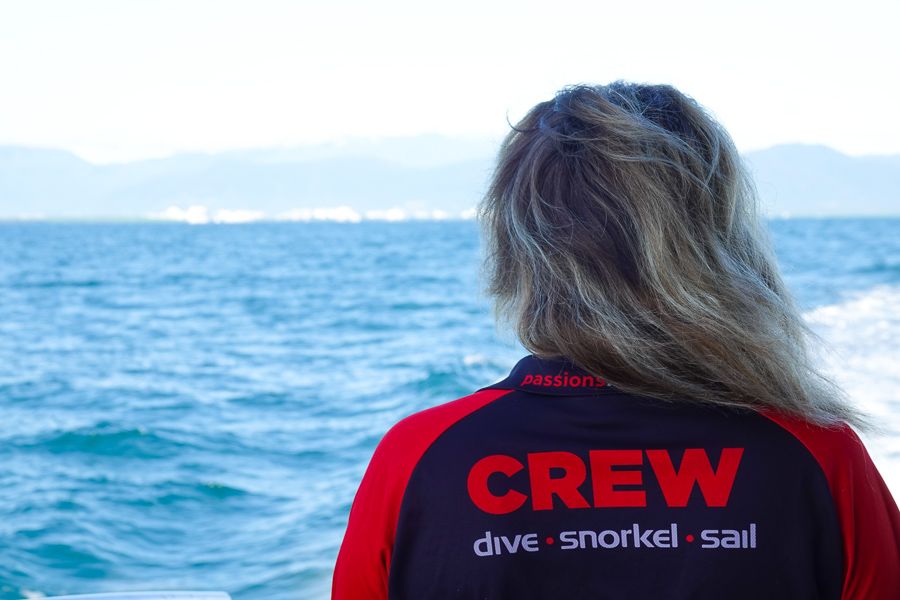
Marine stingers can be found in waters around the world at all times of the year, yet it is best to be aware of the appropriate precautions to remain best protected during your sun-soaked time in tropical North Queensland.
Time to put on a stinger suit and rest assured that you are in for a holiday filled with swimming and snorkelling adventures at all times of the year on the Great Barrier Reef, armed with extensive knowledge of these marine creatures before entering the water!

